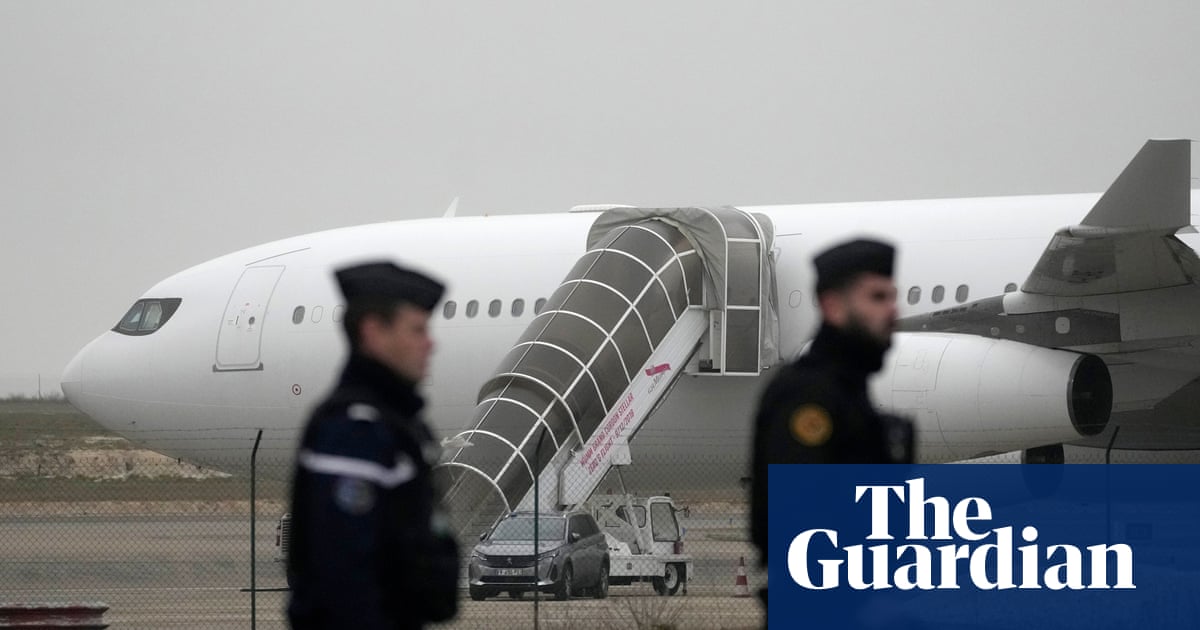
The detention in France of a charter plane bound for Nicaragua has renewed attention on the Central American nation’s role as a springboard for migrants from across the world seeking to make their way to the United States.
The flight, which left the United Arab Emirates on 21 December with 303 passengers of Indian nationality, was grounded during a refueling stop after an anonymous tip-off alleging human trafficking.
The passengers, however, were not being trafficked against their will, but rather attempting to migrate.
Nicaragua is the closest country connected by land to the United States that does not impose strict entry requirements upon citizens of many nations who are barred from flying to other destinations without a visa.
While some countries have imposed visa requirements upon certain nationalities under pressure from Washington, experts say that the Nicaraguan president, Daniel Ortega, has taken a contrarian approach in an attempt to weaponize migration and force negotiations over sanctions imposed on members of his inner circle.
“Ortega is being very astute by playing with what hurts the United States the most,” said Ana María Méndez, director for Central America at the Washington Office on Latin America, referring to the current migrant crisis and the political liability it represents for President Joe Biden heading into the 2024 election. “It’s like pouring alcohol on an open wound.”
In 2014, as another migrant crisis boiled over, Nicaragua imposed visa requirements on Cuban citizens to help stem the flow of migrants heading to the US border. But since then, relations between the two countries have deteriorated due to Ortega’s rigging of the 2021 election and a slew of human rights abuses.
Following political upheaval in Cuba during the summer of 2021, Ortega rescinded the visa requirements for Cuban citizens. The charter flights from the island began soon after as a sort of “escape valve” for the Cuban government, which would rather see people leave than protest in the streets, explained Méndez.
Eventually, people from other nations, such as Haiti, followed suit in order to shorten their journey to the United States and avoid the treacherous Darién Gap route along Panama’s southern border.
Due to the frosty relations with Ortega, the Biden administration has attempted to work around the Nicaraguan government to halt the charter flights filled with migrants as they come from increasingly far away.
On 30 October, the government of Haiti enacted a ban on charter flights to Nicaragua, which in the previous three months had transported roughly 30,000 people. As a result, the number of Haitians traveling north by land through Honduras dropped dramatically in November.
Then, on 21 November, the state department announced a new visa restriction policy targeting “owners, executives, and/or senior officials of companies providing charter flights into Nicaragua designed for use primarily by irregular migrants to the United States”.
Several charter companies stopped flights, but some were apparently undeterred. That included Legend Airlines, based in Romania, which earlier this month sent the first direct flight from Europe to Nicaragua in years and was responsible for the plane detained in France.
The flight from France was ultimately rerouted to India, minus two passengers who were held for further investigation and 25 others who decided to request asylum instead of return to their home country.
India has launched its own investigation into the flight, which passengers reportedly paid between $48,000 and $150,000 to board, an Indian police official told AFP. Roughly 100,000 Indian nationals have arrived at the US-Mexico border in 2023, more than 10 times the number in 2019.
Meanwhile, flights from Cuba continue to arrive in Managua via an airline owned by the Venezuelan government, which is seemingly unconcerned about sanctions but is also engaged in its own set of negotiations with the White House after relations had been severed during the administration of former president Donald Trump.
On social media, supposed travel agencies advertise flights on the Venezuelan airline from Havana to Managua for about $1,500, as well as all-inclusive packages for $4,000 and up that include services such as transport to Mexico, meals, lodging and even assistance with navigating the US Customs and Border Protection’s CBP One app, which is used by migrants to, among other things, make appointments to apply for asylum.
“The airlines and travel agencies that are facilitating this are the new coyotes,” said Méndez, using a term for illicit people smugglers.











